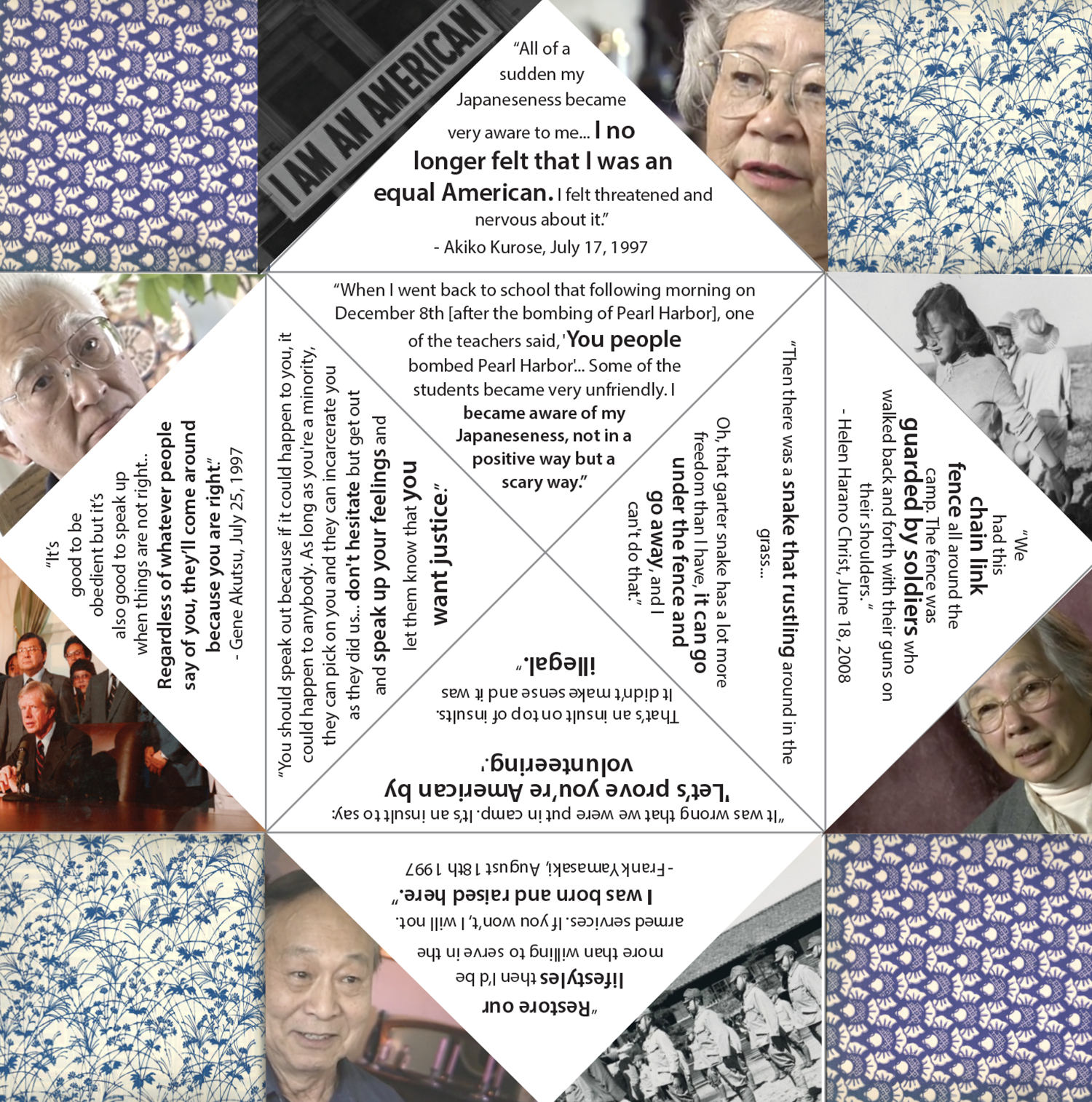
NI DO TO (Never Again): A Creative Reflection
NI DO TO translated from Japanese to English means “Never Again.” Please reflect on all that you have experienced and taken in from your journey through this exhibition on the lived experiences of Japanese Americans during World War II. Given what you know, how might you draw from your own experience, introspection, and wisdom to ensure that “never again” will these tragedies, these wrongs of justice, repeat themselves.
Write your reflection on a tag and hang it on the art installation wall as a symbol of your commitment to ensure that these tragedies and injustices will NI DO TO “Never Again” happen.
Designers: Jerushia Graham, Karin Myint, Courtney Ozaki, Onur Topal-Sümer, Ida Yoshinaga.
Umbrellas by Dana Kawano
Never again is now.
Below is a list of organizations that you may follow to learn more about supporting the lifting up of Japanese American history, and where you may action to help others today who are working towards ensuring the tragedies of the past do not repeat themselves in the present:
- Tsuru for Solidarity: Tsuru for Solidarity is a nonviolent, direct action project of Japanese American social justice advocates working to end detention sites and support front-line immigrant and refugee communities that are being targeted by racist, inhumane immigration policies. They stand on the moral authority of Japanese Americans who suffered the atrocities and legacy of U.S. concentration camps during WWII and say “Stop Repeating History!” https://tsuruforsolidarity.org
- Densho: Preserving stories of the past for the generations of tomorrow, Densho documents the testimonies of Japanese Americans who were unjustly incarcerated during World War II before their memories are extinguished. https://densho.org
- Japanese American Citizens League (JACL): The Japanese American Citizens League is a national organization whose mission is to secure and safeguard the civil and human rights of Asian and Pacific Islander Americans and all communities who are affected by injustice and bigotry. The leaders and members of the JACL also work to promote and preserve the heritage and legacy of the Japanese American Community. https://jacl.org
- Asian Americans Advancing Justice - Atlanta: Asian Americans Advancing Justice-Atlanta is the first and largest nonprofit legal advocacy organization dedicated to protecting the civil rights of Asian Americans, Native Hawaiian, Pacific Islander (AANHPI) and Arab, Middle Eastern, Muslim, and South Asian (AMEMSA) communities in Georgia and the Southeast. https://www.advancingjustice-atlanta.org
- Council for American Islamic Relations (CAIR): The Council on American-Islamic Relations (CAIR) is a nonprofit, grassroots civil rights and advocacy organization. CAIR is America’s largest Muslim civil liberties organization, with affiliate offices nationwide. https://cair.com
Japanese American Stories and History - A Student Reflection Project
Professor Ida Yoshinaga and Yayoi Kambara collaborated with students from Georgia Institute of Technology on a creative reflection where students were asked to incorporate content based on the Japanese American incarceration experience into students’ own takeaways about this history, capturing the lessons in a paper origami fortune teller. This creative writing project, designed by third-generation Japanese American Yoshinaga, asked students to reflect and draw on Japanese American incarceration history and its stories and cultural artifacts, to capture ethical, social, political, historical, material, and spiritual meanings of a community’s human experience.
Collaborators: Ida Yoshinaga, students from the Georgia Institute of Technology LMC 4813/8803 “Special Topics: Oral Traditions to Screenplay” class, and Yayoi Kambara.
Design consulting from Jerushia Graham and Japanese paper designs from the Robert C. Williams Museum of Papermaking.
Georgia Tech undergraduates and graduate students who contributed fortunetellers based on their research into the Densho Digital Archive: Kara Kanter, Ian Campbell, Brianna Brown, Bryan Rocha, Alexis Mellott, Charles Key, and Angelica Jones.
NI DO TO installations will be free and open to the public in the lobby of the Ferst Center for the Arts on the Georgia Tech campus.
Open Tuesday-Saturday, 9 a.m.-6 p.m., from September 18 through October 27 (closed on 9/30 and 10/21 for home football games.)
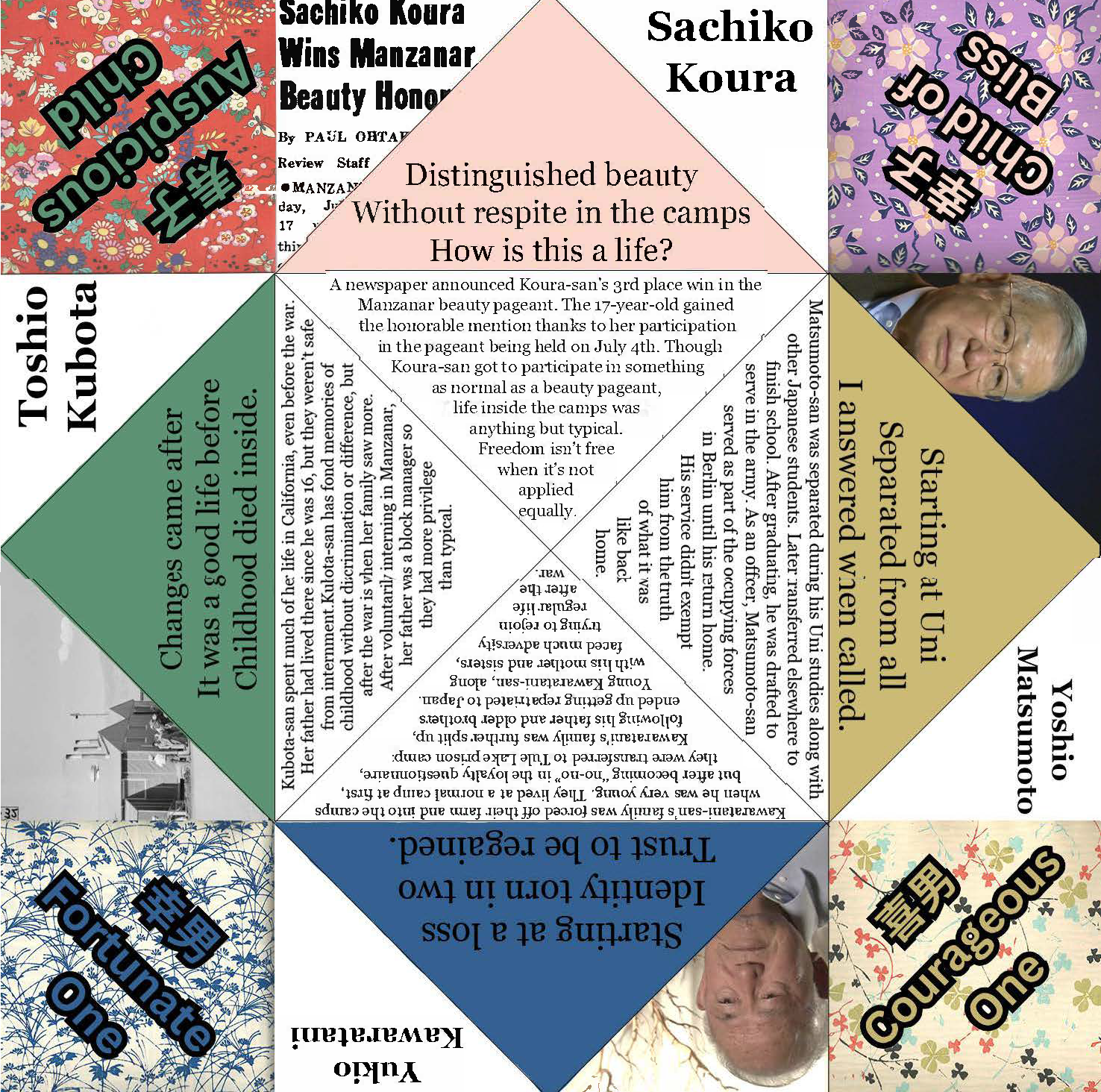
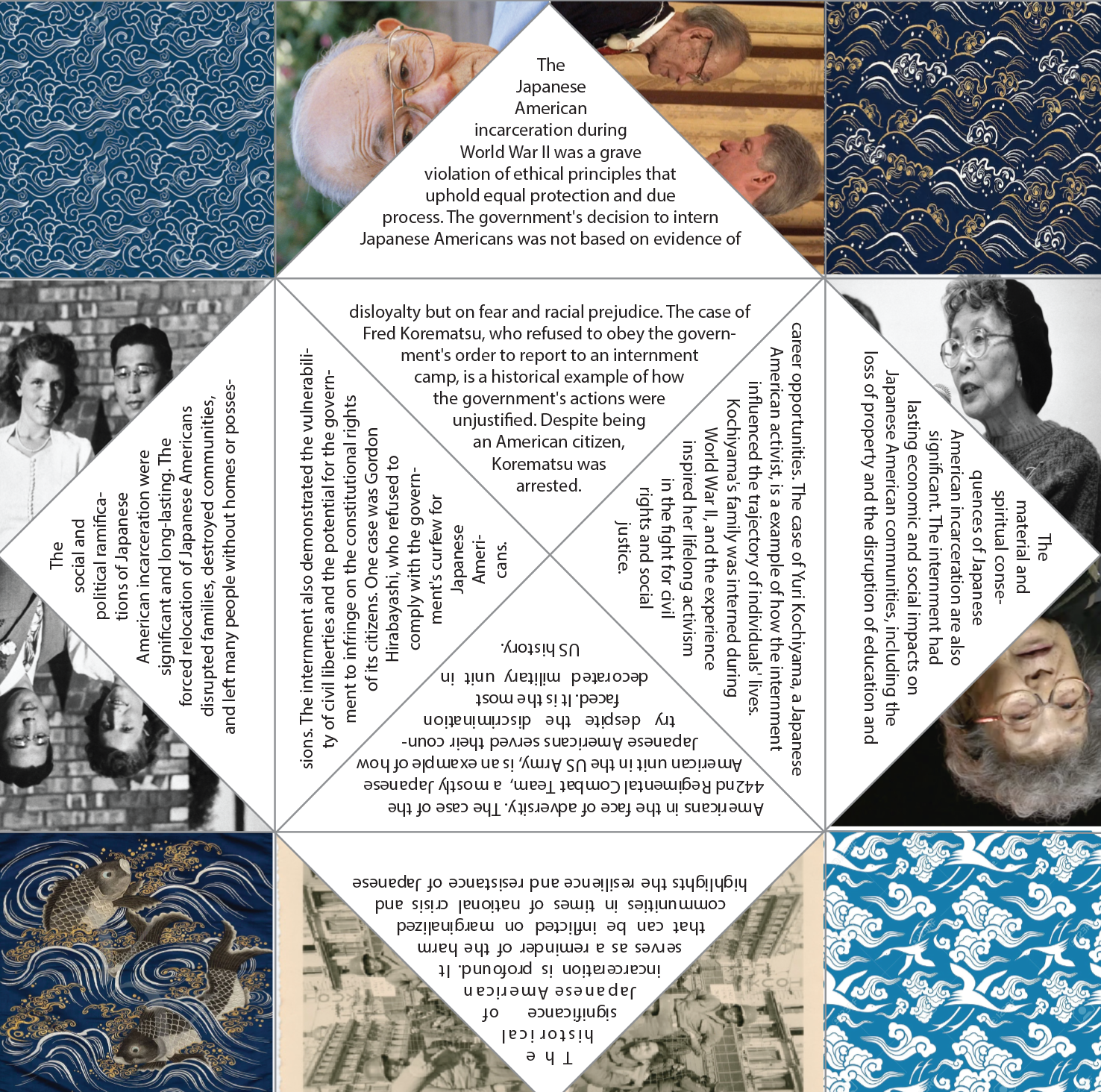
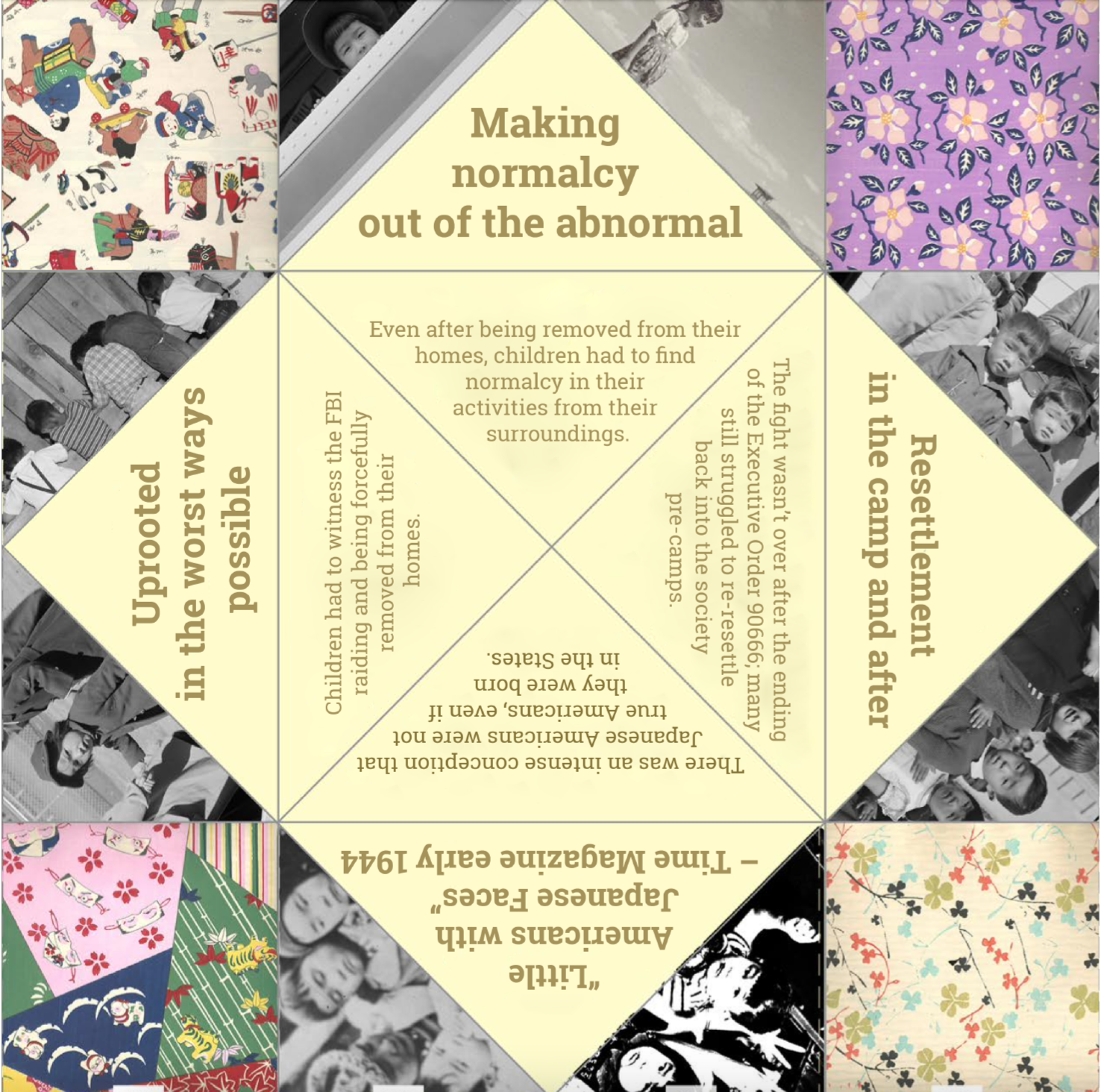
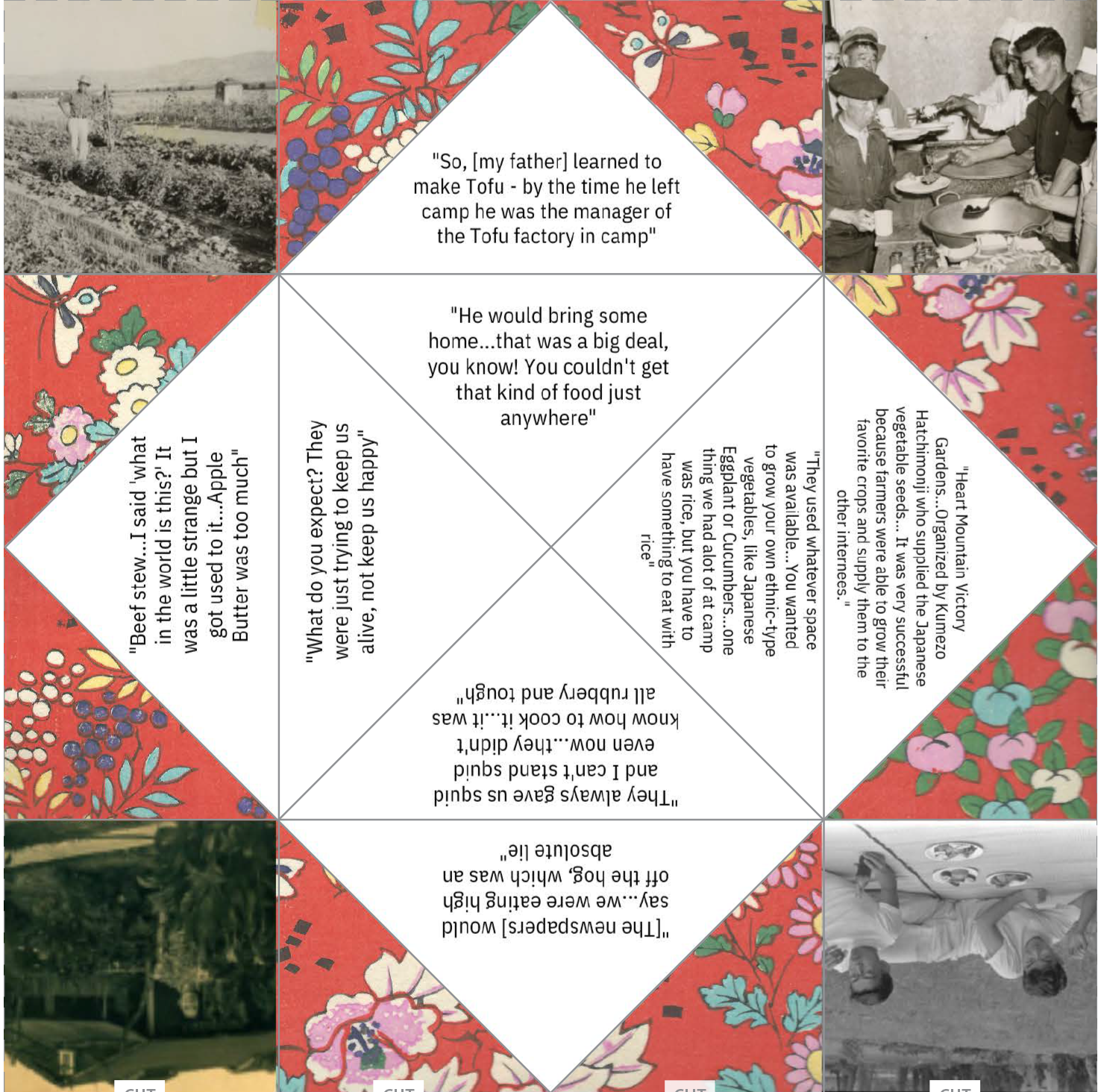
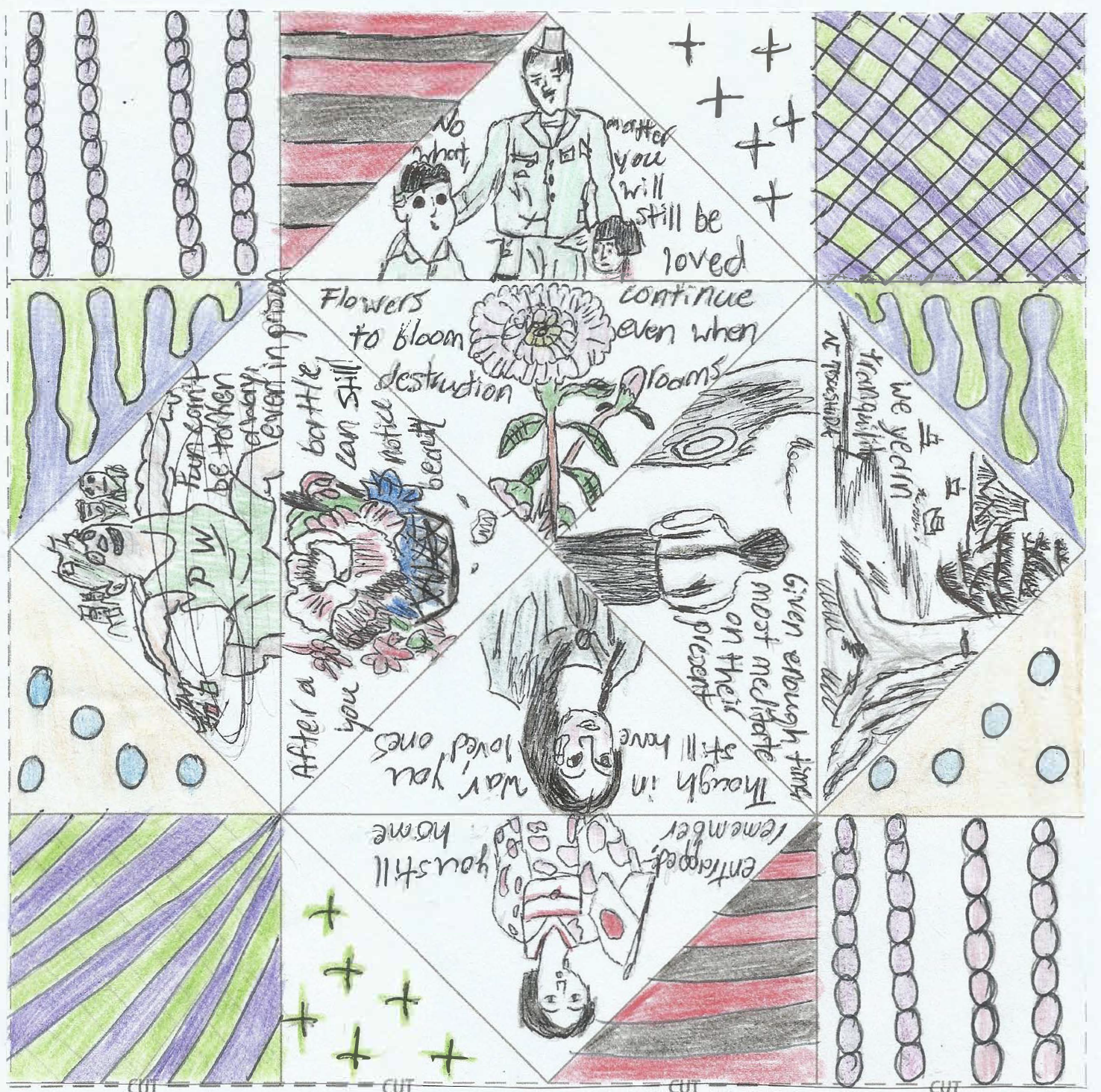
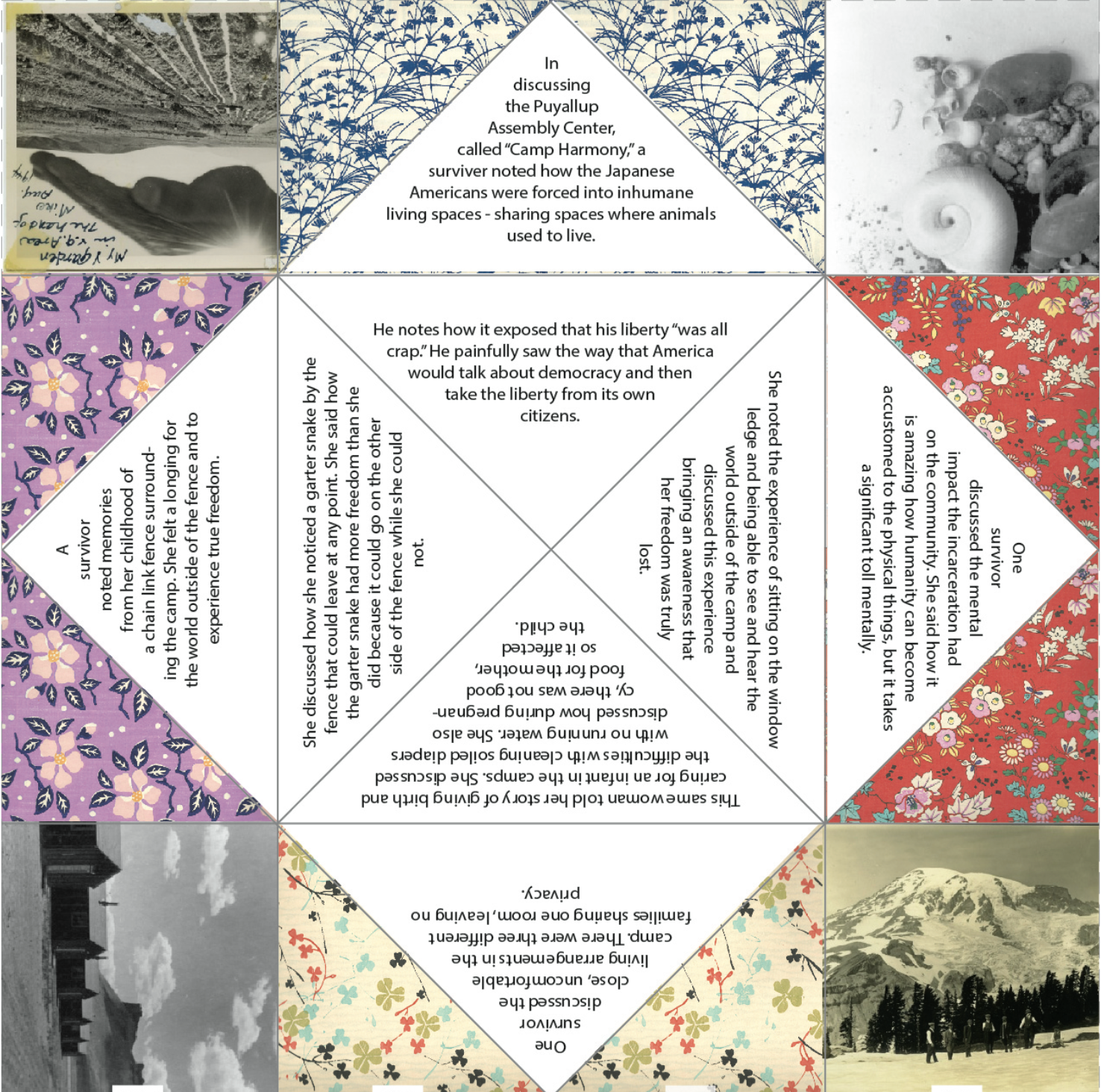
LMC 4813/8803 Class I SPRING 2023
Project created in collaboration with choreographer Yayoi Kambara.
Fortuneteller text by GT students; idea by their teacher. Ida Yoshinaga.
Direct quotations and photo credits: Densho Archive.
Image credit: Scans of decorative Japanese papers from the Robert C. Williams Museum of Papermaking.